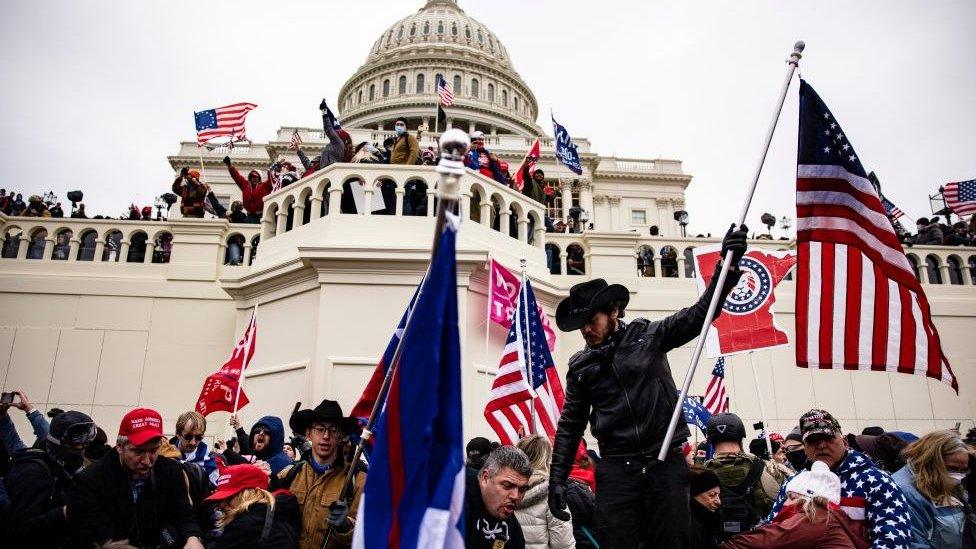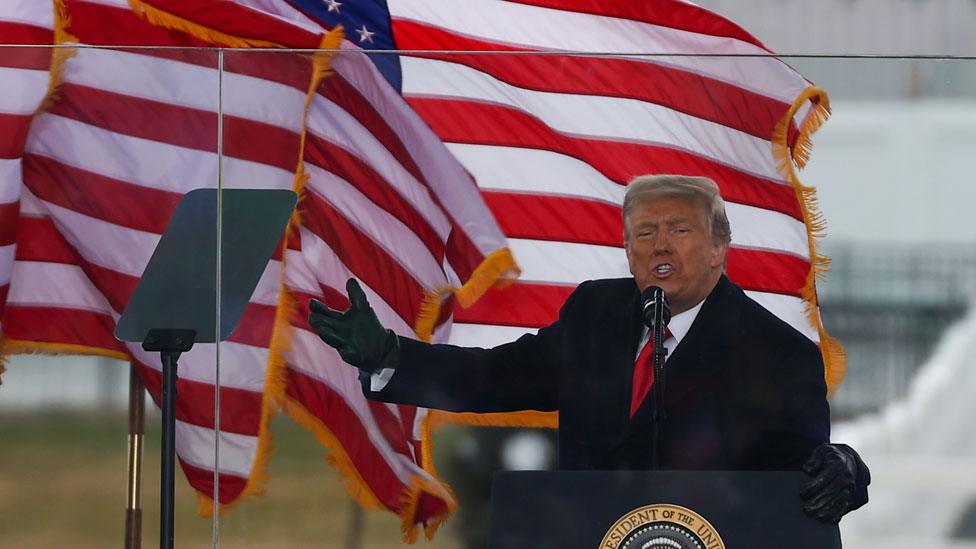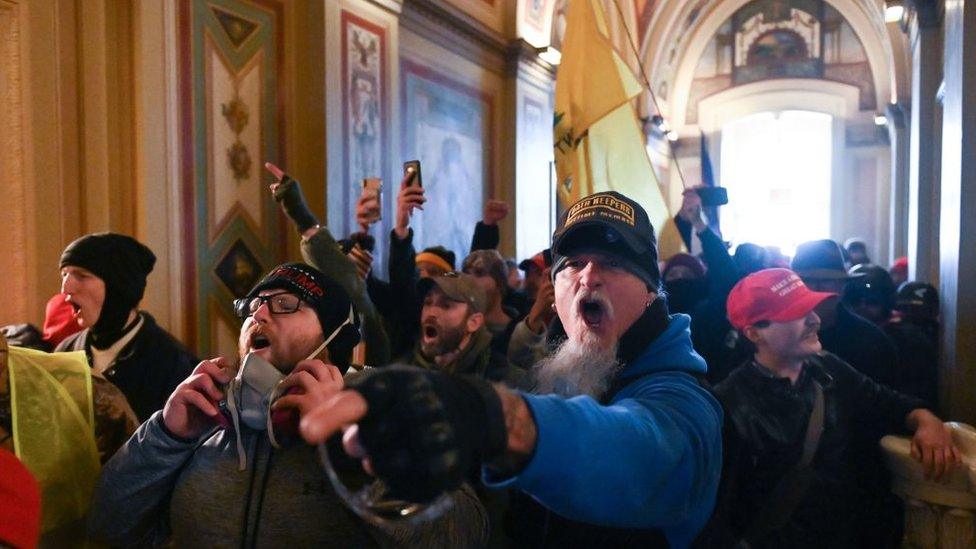US Capitol riot: Senate spells out intelligence and police failures
- Published

A broad breakdown in law enforcement intelligence and communication before and during the Capitol riot in January has been set out in a US Senate report.
It found intelligence was not passed on to police and officers lacked command, as supporters of then-President Donald Trump stormed the building.
The breach of Congress in Washington DC happened as lawmakers gathered to validate Joe Biden's election victory.
The report does not discuss the role of the Republican president in the riot.
It does note that Mr Trump encouraged supporters to go the Capitol building on 6 January but words such as "insurrection" are not used.
Sources told US media the wording was chosen carefully to preserve bipartisan agreement between Republican and Democrat senators on the two committees submitting the report - Rules and Homeland Security.
The Senate report could end up being the last major investigation into the incident, something Republicans favour.
Mr Trump was impeached on a charge of inciting a mob to storm the Capitol but was acquitted in February.
In addition to covering the failures on the day, the report also sets out recommendations.
Intelligence agencies are said to have failed to properly assess the social media chatter ahead of the violence.
And on the day, the Washington DC National Guard was not deployed by the Pentagon until three hours after it was requested by police.
A breakdown of command led to officers suffering broken bones, head injuries and chemical burns at the hands of rioters.
The report drew on interviews and statements from the police, the FBI and the Department of Homeland Security, although sources told US media the information from the latter two was not as complete as hoped.
The report said that, although intelligence agencies did pass some material on to law enforcement, the "decentralised" intelligence unit in the Capitol police meant not all officers were informed.
The Capitol police force has primary jurisdiction over the Capitol building and grounds, but its police chief reports to a three-person board.
Earlier this year, the Senate found that none of the board members had a full understanding of their own authority to request National Guard assistance. Two of the three members have since resigned.
One of the recommendations the report makes is to allow the Capitol police chief to get a direct response from the National Guard rather than awaiting Pentagon approval.
Three accounts of politicians of the US Capitol riot
Capitol police chief Steven Sund had begged for assistance only for the request to get bogged down in hours of calls with the Pentagon, which in turn wasted time in planning and seeking approval for a response, the report found. Mr Sund too has since resigned.
Although Democrats have tried to set up a commission modelled on the 9/11 attacks inquiry to look into the riots, the attempt failed to get the 60 votes needed in the evenly divided Senate.
Related topics
- Published14 February 2021

- Published16 April 2021
